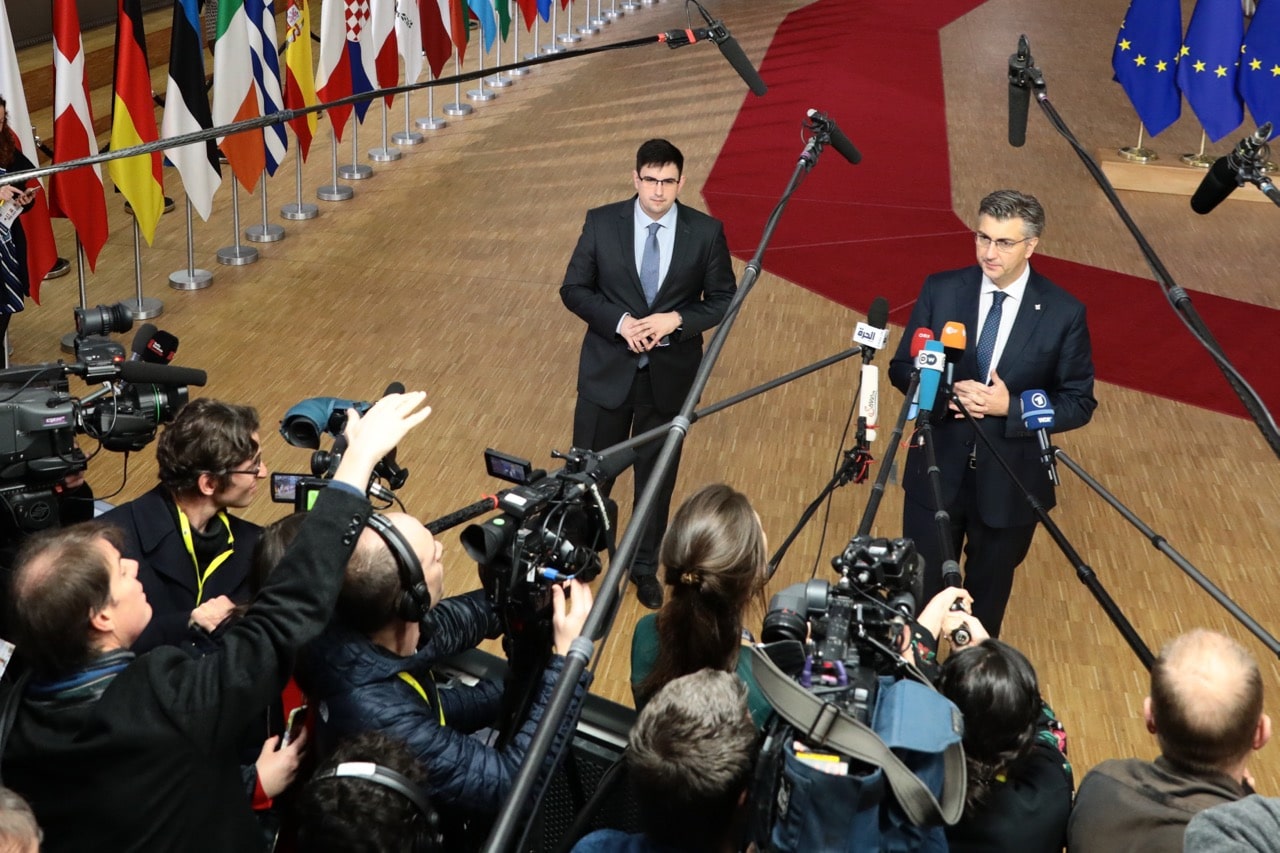**Updates IFEX alerts of 28 January, 25 January and 20 January 1999** (RSF/IFEX) – The following is a 29 January 1999 RSF press release: Croatia: the regime increases pressure on independent media Authorities in Zagreb are using their newspaper distribution monopoly to choke the last dissenting voices in the run up to legislative elections expected […]
**Updates IFEX alerts of 28 January, 25 January and 20 January 1999**
(RSF/IFEX) – The following is a 29 January 1999 RSF press release:
Croatia: the regime increases pressure on independent media
Authorities in Zagreb are using their newspaper distribution monopoly to
choke the last dissenting voices in the run up to legislative elections
expected in 1999. After having been harassed, threatened and dragged through
the courts, media which are critical of the government risk economic
asphyxiation today.
In mid-January, the only satirical weekly in Croatia, Feral Tribune,
announced that it faced serious financial difficulties: its journalists are
no longer paid and the newspaper is unable to pay printing costs. “We are
convinced that this is due to a strategic government policy which seeks to
settle accounts with independent media prior to the holding of legislative
elections in 1999,” say the newspaper’s journalists. The national company
Tisak, which has a monopoly on newspaper distribution, refuses to pay a 1.5
million kuna (approx. US$200,000; euro178,100) debt to the weekly. This
company is owned by Miroslav Kutle, an influential member of the Croation
Democratic Community (HDZ, ruling party) and close associate of President
Tudjman. Tisak is also refusing to pay its debt to another weekly, Nacional,
further to its publication of a series of articles critical of HDZ. As a
result, Nacional’s activities have been severely disturbed.
Reporters sans frontières is asking Croatian authorities to cease their
judicial and economic harassment of independent media, notably the weekly
Feral Tribune. The organisation recalls that certain legislative provisions
in Croatia constitute abusive restraints on the right to inform and are in
flagrant contradiction to international press freedom norms. Croatia remains
the only country in Europe where journalists can be jailed for ” slander or
insult to the character of the President of the republic” or for “spread of
information liable to generate concern in the majority of the population”
(articles 71 and 191 of the penal code). According to current legislation,
legal proceedings can be launched against a journalist for “insulting”, even
if incriminating facts are proved. As such, over five hundred trials are
currently underway against journalists in Croatia, most of which were
brought forward by members of the government, influencial members of HDZ or
those close to them.
Reporters sans frontières also recalls that HDZ continues to control all
public media, most notably state radio-television (HRT), which remains the
primary information source for Croatians. The few dissident journalists of
HRT, members of the “Forum 21” association, recently lost their jobs. In
January 1999, an HRT political programme was suspended.
Considering the state of press freedom in Croatia, Reporters sans frontières
is asking Council of Europe representatives to reexamine the country’s
status as a member of this institution. Croatia is a member since 1996.


